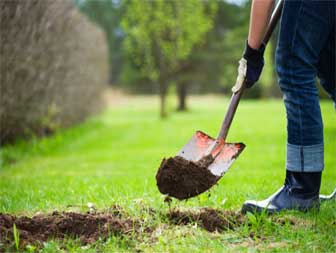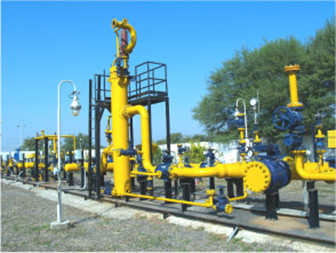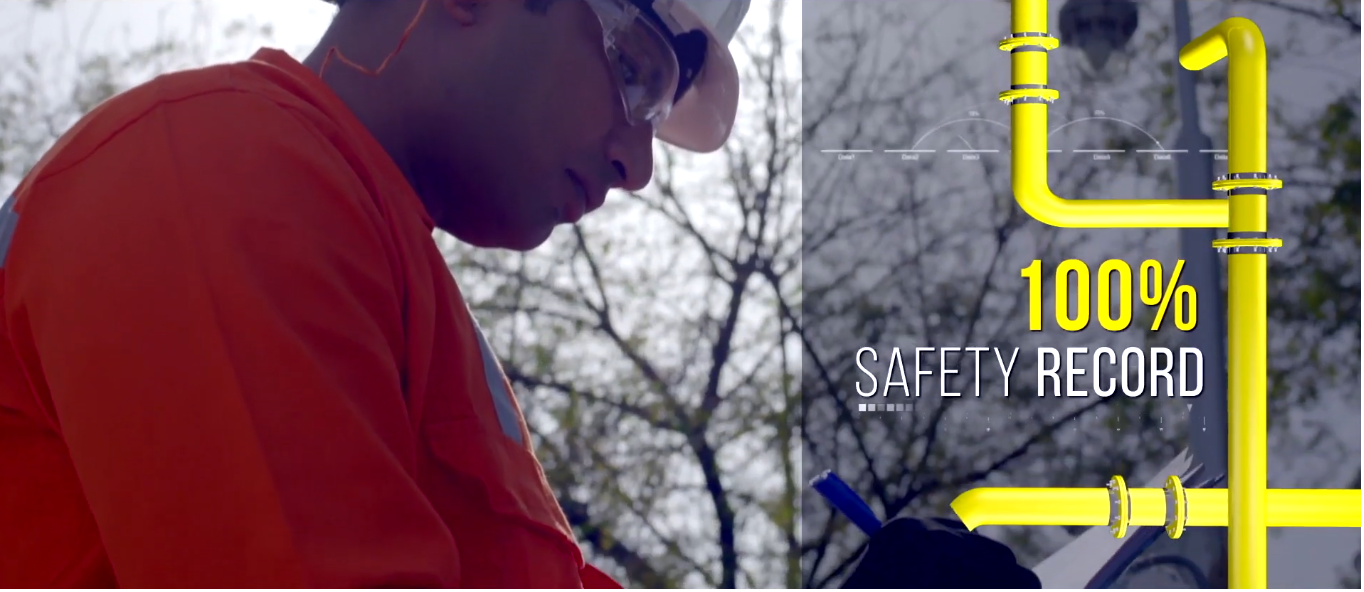Health & Safety
Natural gas is one of the safest and most reliable fuels available and rarely does a mechanical failure or storm interrupts its dependable delivery. Adani Total Gas Limited continually monitors our pipeline system to ensure safe and reliable delivery of natural gas to your home.
For your protection, we add an odorant to natural gas, so you can detect even the slightest amount of natural gas in the air. View our safety pages to learn the facts about natural gas to help keep you safe, such as what to do if you suspect a natural gas leak.
Natural Gas Safety
Giving you the facts to help you live safely.
Physical properties of natural gas
- Natural gas is colourless and odourless.
- Natural gas is primarily methane, with small amounts of other hydrocarbons.
- Natural gas is non-toxic.
- Natural gas is lighter than air; if it escapes, it will rise and dissipate.
- Natural gas is clean-burning; when burned with the proper amount of air, it produces heat, carbon dioxide and water vapour.
How to Recognize a Natural Gas Leak
The best way to recognize a pipeline leak is by using your eyes, ears and nose.

ISO Certificate
SUP Certificate
ZWL Certificate
Do's
- Before you turn on your gas stove, make it a habit to open all doors and windows for proper ventilation. Since gas is lighter than air, it would disperse immediately in case of any leakage. This will help avoid any incidents of fire or explosions.
- In case you smell any leakage, close the main control valve and inform Adani Total Gas Company immediately.
- If the leakage is observed in the yellow PE (Poly-ethylene) line, inform the company immediately and do not allow any vehicles near the leakage point.
- Inform the company for any digging/ construction work on a gas line by you or third party near or around your house.
- Always close your gas tap before you go to bed at night.
- For any changes in your gas pipeline, always ensure an authorized person makes the changes.
- Never use non-standard unauthorized tubes; always insist on rubber tube supplied/ approved by the gas company.
- Always ensure your rubber hose is correctly fit.
- Inform to customer care if subsequent meter reading comes.
- Last reading of your meter shows NIL consumption. Kindly contact our customer care if gas is used, so that defective meter can be replaced.
Dont's
- In case you smell a gas leakage, do not operate any electrical switches and appliances.
- Do not smoke or ignite candle lamps etc. in case of any leakage.
- STOP cooking immediately if you smell a gas leakage.
- Do not carry-out or allow any digging and alteration/construction on gas line. If required inform Adani Total gas company about it.
- Do not allow any flame, spark or smoking near the leakage point.
- Never carry out any alteration by yourself and never tamper with any fittings of gas connection.
Guidelines
- Do not tamper with any component of the gas connection
- In case the gas flow in your house or area is stopped, inform the Company immediately
- Always close the main control valve if you are not going to be home for a day or more
- When you turn on your gas again after a long duration, make sure all the doors and windows of your house are opened
- Always use standard ISI mark stoves and burners
- Don't ever cover the rubber tubes and regularly clean them with a wet cloth
- Always ensure that the hot utensils or liquids are not in direct contact with your rubber tube
- When you are cooking, make sure that you do not leave the burner or stove unattended
- If you can smell gas or doubt a leakage, do not ignite a match or lighter
- Once you complete your cooking, make sure you close the burner knob and gas tap
- Gas leakage / gas escape can be easily detected due to its peculiar smell or odour
- If the gas supply stops suddenly, close the knob and open all doors and windows. Only once there is no smell of gas should you turn on the stove again
- It is safe to wear cotton apron or cotton clothes during cooking
- Never use a sari to lift any utensils from the stove
- It is always safer to ignite a match first, and then to switch on the gas supply
- Keep children away from the gas stove and gas connection
- Periodically keep checking the rubber tube for any cuts, damage
- Never store combustible or explosive/ flammable items in the kitchen
-
When you are cleaning the burner
- Close the main valve and gas tap
- Allow the stove to cool down and then clean the burners with a cloth. Clean the burners with warm water and use soap or other cleaning agents if the burner is oily
- Allow the burner to dry up. Clean the burner head in the similar way. Clean the burner head with a hard brush
How to Recognize a Natural Gas Leak

Discoloured or dead vegetation around the pipeline area
Slight mist of ice


Inside your home building




Outside your home or building




079 2762 3264
Call before Digging
For your safety, you are required to call at least two working days before you plan to dig so your underground utility lines can be marked.

Natural Gas is transported and supplied to the consumer's premises through an extensive pipeline network that is based on the Main Steel Pipeline that brings the gas from the source to the city. The gas, commonly known as Piped Natural Gas (PNG), is routed via smaller pipes to homes, offices, stores, factories and all major demand centers in the city. Along the steel network, CNG stations are located, where NG is compressed and distributed to vehicles as a fuel. Pressure regulators maintain the requisite pressure in the pipeline. Metering device installed in the customer's premises records the units of gas consumed by the user based on which invoicing is done.





